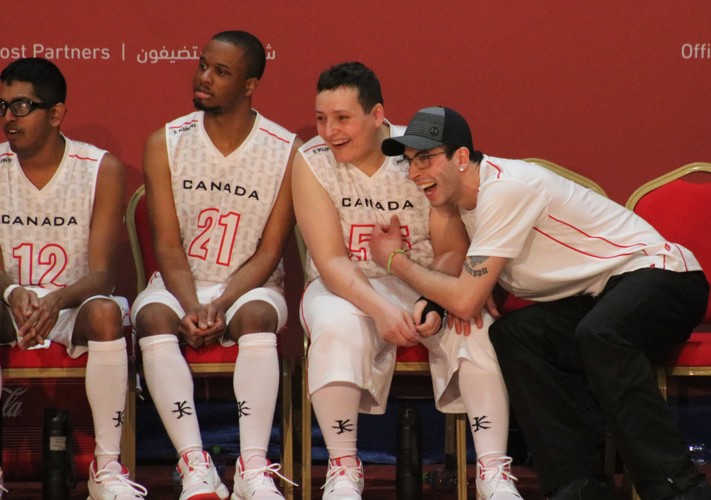Who Can Participate

What Is an Intellectual or Developmental Disability?
The terms intellectual disability and developmental disability are sometimes used interchangeably in Canada. This is meant to be inclusive of both terms, and includes people who face challenges in learning and communication, and people with Autism, Fetal Alcohol Spectrum Disorder, or other neurodevelopmental conditions. An intellectual disability is something someone can be born with or it can be acquired later in life.
Intellectual disability (or ID) is a term that describes individuals whose intelligence (thinking, reasoning, problem-solving abilities) and daily living skills are well below other people of the same age. Children with an intellectual or developmental disability learn and progress at a slower rate than typically developing peers. They may take longer to learn to reach developmental milestones, learn daily living skills, and learn academic skills at school.
The term adaptive functioning refers to a person’s ability to perform everyday skills or activities, and is broken down into three key areas:
- Conceptual: Language, reading, writing, math, reasoning, knowledge and memory
- Social: social judgment, interpersonal communication skills, and the ability to make and retain friendships
- Practical: self-management, personal care, job responsibilities, money management, recreation, and organizing school and work tasks
Overall, inclusion is preferred to exclusion when eligibility is in question. Special Olympics Canada is focused on creating a safe and positive community for anyone who wants to participate.
How Common Are Intellectual Disabilities and what are the impacts?
Estimates of the number of people in Canada with intellectual and developmental disabilities (IDD) range from 0.5% to 3% of the population. The exact number is difficult to determine because of the methods used to identify people with disabilities.
- About 755,000 Canadians have an intellectual disability, and millions more are family members.
- 70% of people with an intellectual disability live below the poverty line.
- 75% of working aged adults with an intellectual disability are unemployed.
- 60% of children with an intellectual disability do not receive quality education in their neighborhood schools.
- Young adults with an intellectual disability are five times more likely than those without disabilities to have no formal education certificate.
What about physical disabilities?
The primary focus of Special Olympics Canada is to enrich the lives of individuals with an intellectual disability through sport. Focus on intellectual disability is what differentiates Special Olympics from the Paralympics, which serves individuals with physical disabilities. The International Olympic Committee recognizes Special Olympics and Paralympics as two separate and distinct sport organizations, that meet the needs of two separate communities of athletes.
How much athletic skill or experience is needed?
Athletes of all ability levels are encouraged to participate in Special Olympics programs. Through the use of equitable divisioning, competitions are structured so that athletes compete with other athletes of similar abilities.
Is there a minimum age to participate?
Each Special Olympics program has specific age guidelines, depending on the type of activity. Community based programs offer athletes the programs necessary to develop important skills required in sport and everyday life. You can start as early as two years of age, but you are never 'too old' to start!
Active Start and FUNdamentals are innovative play programs for children with intellectual disabilities that focus on physical literacy and basic motor skills development. Active Start and FUNdamentals are open to children between the ages of two and 12.
Special Olympics community and competitive programs, on the other hand, do have a minimum age requirement of eight years of age. Our competitive athlete programs start locally and can grow to international competition depending on athlete wishes and development.
Are there any other restrictions?
Participants must agree to the sport rules of Special Olympics Canada. For more information about the requirements or on how to register, please contact your Provincial or Territorial Chapter.
